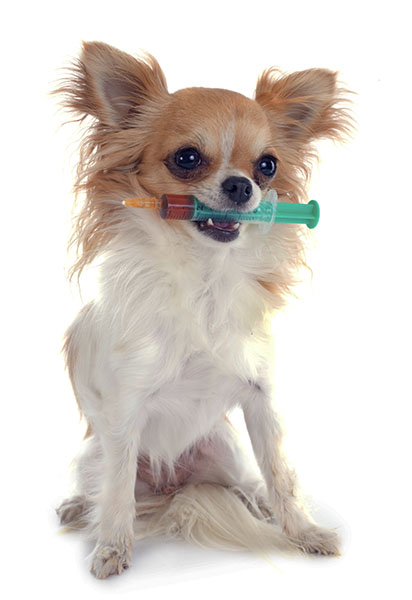Types of Vaccines
Vaccines are used to help the body’s immune system ward off disease-causing organisms. For pets, they work the same as human vaccines. Each vaccine contains antigens, a substance that triggers the immune system to develop antibodies. The antigens present in vaccines act like a disease-causing organism, though they are actually relatively harmless. The body’s adaptive immune system then kicks in to identify and get rid of these foreign bodies. If a pet is ever exposed to the real disease, their immune system can easily identify and fight the invading organism.

The most common vaccines protect against parvovirus, distemper, hepatitis and rabies, though a variety of others exist that may be administered by veterinarian recommendation.
Vaccinations for Puppies
Much like humans, dogs will begin receiving antibodies via their mother’s breast milk as long as her immune system is in good health. Vaccinations for specific ailments will be given in a series starting at six to eight weeks of age, with the final dose given at 16 weeks of age.
Adult Dog Vaccinations
Your veterinarian will determine the best vaccination schedule for your dog. The dose and how often it is given depends on various factors such as the type of vaccine, the dog’s age, it’s medical history, environment and lifestyle. The vaccine dosage will vary from puppies to dogs. If it is their first time receiving the vaccine, it may be given annually or every three years.
